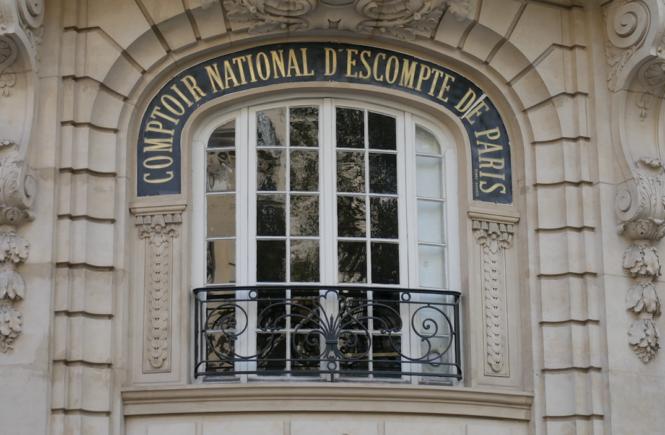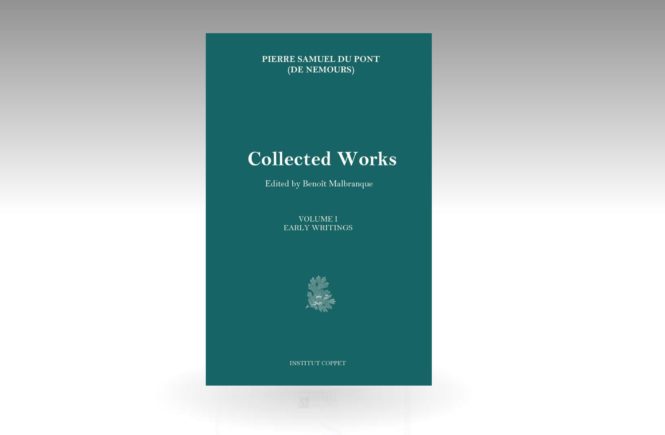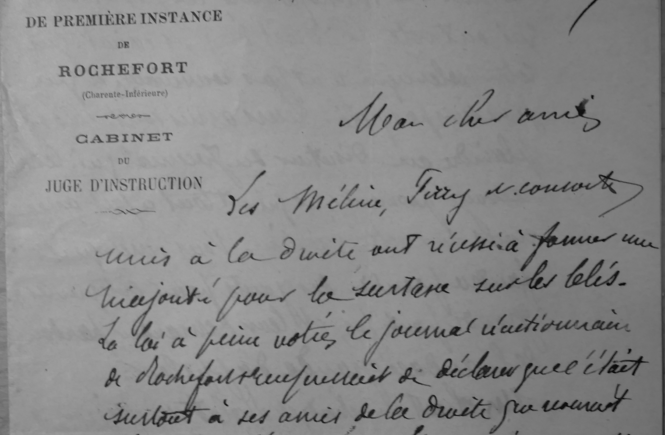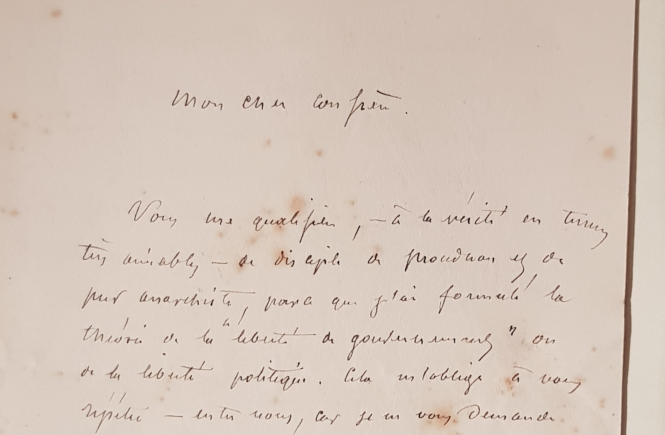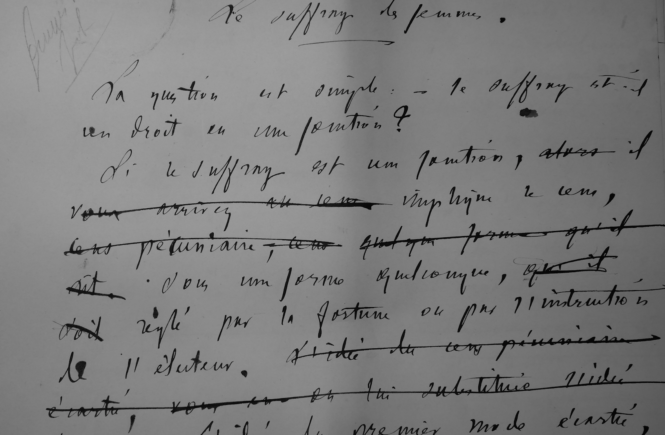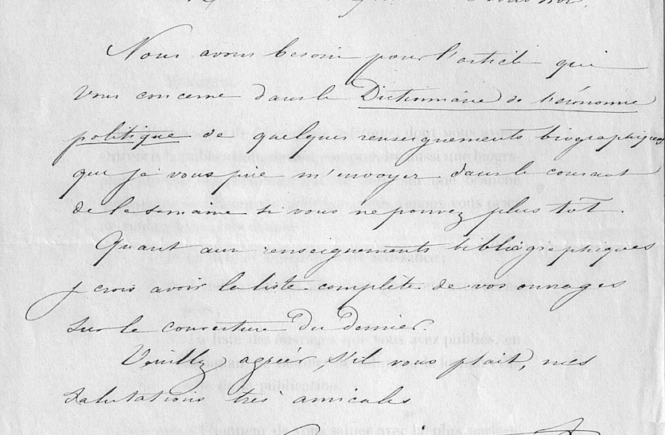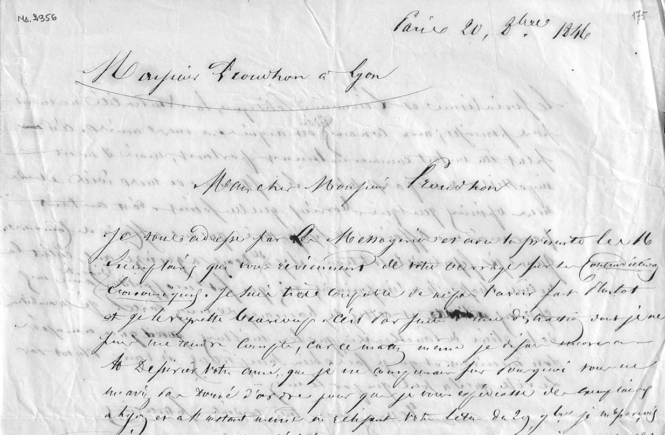Are we to wait for the end of the war? Pierre de Boisguilbert and the opportunity of laissez-faire (1707) by Benoît Malbranque Foreword Laissez-faire (let things be) is an ideal which presents itself in various forms in French literature prior to the 17th century, and first and foremost in the writings of Rabelais and Montaigne, but whose first greatest advocate in economics is Pierre de Boisguilbert (1646–1714). This man, for sure, is a curious fellow, with a peculiar way of writing. English readers until now have never experienced his writings, for his main economic works have appeared in […]
Commercial crises and free banking by Charles Coquelin (1848)
“Without credit, no commerce—without commerce, no labor. Let us seek, then, to build up that credit, which, unfortunately, has never been much extended in France. To effect this, neither great efforts, nor eccentric measures (that would certainly fail in effect) are necessary. There is but one thing requisite—liberty. Not the deceptive liberty that it is pretended we enjoy, but a true liberty that has no accounts to settle with monopoly.”
Introduction to the 1st volume of the Collected Works of Dupont (de Nemours)
On introducing the first of multiple volumes offering the collected writings of the Physiocrat economist Pierre Samuel Du Pont (de Nemours), lengthy pages could be devoted to his merits or the tremendous heritage that he left, both intellectually and practically, on each side of the Atlantic. Yet on the assumption that a reader opening such a large book must have been motivated by more than a sense of curiosity, and his justification been more substantial than a pick at random, I shall confine myself presently to the assertion that on the part of the Institut Coppet, and mine, it is our feeling that a duty has simply been performed, and justice rendered.
Moderates against radicals on the issue of free trade (1885)
Why, indeed, have we been beaten? Because of the unawareness of the public regarding the issue: ignorance is therefore the enemy that we have to fight and to defeat, and in this very battle our weapon must be the truth, the only exact and only fruitful principle of the inalienable and imprescriptible right that is the right to exchange.
The benefits of free competition in religious matters by Henri Basnage de Beauval
“When the Church has no enemies to fight, and sails on a calm sea, no one thinks of preparing for battle, nor of forestalling the pitfalls from which one might expect wreckage during the storm. The Church necessarily falls as soon as she speculates that she can no longer fall, the cause probably being the neglect that follows this claim, for one hardly thinks of digging deep into the matters of a religion that no one is challenging.”
Letter from Gustave de Molinari to Arthur Mangin (1885)
In addition to the office of the Revue Bleue, I regularly visited that of the Journal des Économistes, which was adjacent to Guillaumin’s publishingcompany, located on rue de Richelieu. Every Saturday, in the late afternoon, the editor-in-chief, Gustave de Molinari, was receiving people. I cannot remember anyone whose conversation struck me more or as much as his. When discussing any issue, he had his own ideas and phrases. One could never be sure of what he was going to say, or how he was going to say it, except that he would say it like no one else. His originality went as far as paradox, and he carried paradox into theory.
Yves Guyot on women’s suffrage (1879)
What is the argument of opponents of women’s suffrage? Their incapacity, their feeble mind, their ignorance! They proclaim, by this very fact, that universal suffrage is a function. Men are sole responsible for regulating it. They establish themselves as the sovereign judges of the aptitudes of those who are to fulfill it. They claim to be the only ones capable of doing so; all of them are capable; and being the strongest, they exclude all women. After having banned half the nation from that role, they pompously declare that they have established universal suffrage. It is the oligarchy of sex substituted for the oligarchy of money.
A request for information in the prospect of the dictionnaire de l’économie politique (1853)
The Dictionnaire de l’Économie politique, which we have undertaken, will include short biographies of the people who have written on any branch of Political Economy, and consequently we kindly ask you to provide us with:
1° The date and place of your birth;
2° A summary of the positions you have held;
3° The list of the works you have published, indicating the number of volumes, the format and the date of publication.
Two letters from Frédéric Bastiat to A. de Lamartine (1847)
Why would I hide this observation from you? The more France admires your imagination, the more she distrusts it. Poetry and business are believed to be mutually exclusive; one finds in your speeches noble thoughts, generous intentions, an inimitable eloquence, but one cannot find a program, namely what there is to do now. Tell us, tell us then: If I were a minister, these are the reforms I would make and the order in which I would make them! — And if that is clear, striking, practical, be sure that France will take you to the ministry.
The business ethos of Guillaumin (1846)
The time is approaching, Mr. Guillaumin, when an all-out fight will be fought between Socialism and Political Economy; between prohibition and non-prohibition, between democracy and monarchy, etc. This battle must not use the cannon, but the press. If you want it, you are in a position to make your store the battleground of all ideas. Remain impartial, seize all opportunities, create them if necessary, and your part in the revolution which is brewing will be one of the best. You know what role the printer and bookseller Panckoucke played in the 18th century; you can surpass it by all the superiority that our century has over the previous one.


